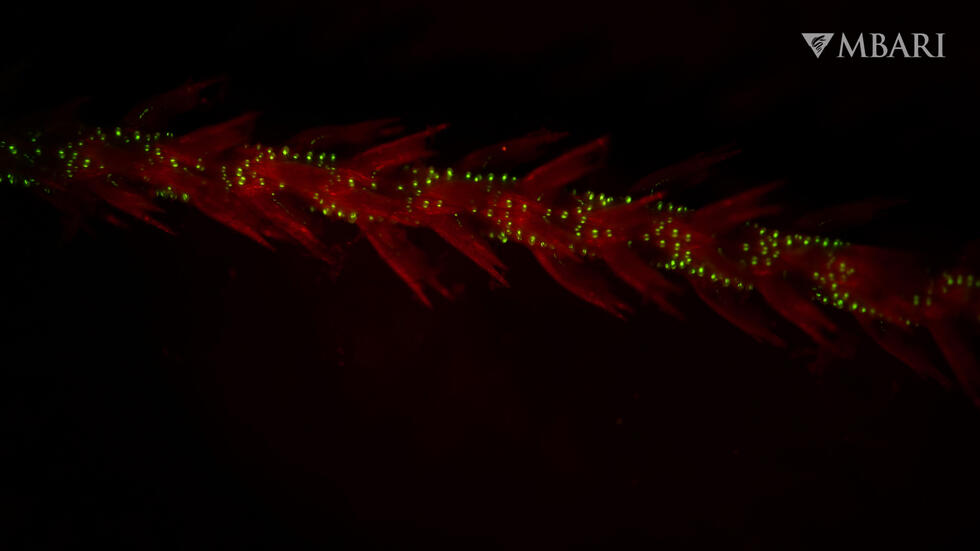
In a new textbook published November 10, 2023, The World of Sea Cucumber, a team of researchers, including Nagoya University professor Manabu Bessho-Uehara, takes us deep into the watery world of sea cucumbers and reveals their ability to emit light.
Drawing on previous studies and their own findings, the team shows the differences between the drab shallow-water sea cucumbers and their brightly luminescent deep-sea relatives. Their fantastic colors are illustrated in full-color photographs taken using a deep-sea probe equipped with a specialized camera, revealing the previously underappreciated luminosity of the creatures.
Their book also discusses the evolution of sea cucumbers from early forms, which were lighting up the Jurassic seas about 180 million years ago, to modern lineages.
For the first time, they present evidence of previously unknown luminosity in 10 deep-sea species, suggesting underestimated diversity. These new discoveries include a member of the order Molpadia, which was previously thought not to be luminescent.
To maintain this diversity, Bessho-Uehara and his colleagues want readers to understand their conservation message. Despite living in deep sea, sea cucumbers are not immune to the effects of commercial exploitation, especially drilling activities that threaten their delicately balanced ecosystem.
“As deep-sea exploration and development continue, information on their biodiversity and ecology, such as this book, becomes important as it allows us to assess the impact of human activities on deep-sea ecosystems,” Bessho-Uehara said. “Heavy metal pollution from the mud discarded during drilling operations and motor-derived noise disrupting sound communication are important problems, but the effects on organisms when bioluminescence signals are disturbed, such as when light is obscured by drilling mud, have not been examined. It is necessary to clarify the importance of bioluminescence on the deep-sea floor and find measures that will lead to sustainable development.”
Bessho-Uehara is sure that his book will be of use to students interested in the complexities of marine ecosystems and the roles of sea cucumbers in them. “This research sheds light on the mysterious bioluminescent abilities of sea cucumbers that await to be explored in the darkness of the deep sea. It brings us one step closer to understanding the mysteries of their diversity and evolution,” he concludes. “I believe that understanding deep-sea ecosystems and interactions among organisms will lead to a better understanding of life on Earth itself.”
This press release highlights the chapter of the book written by Bessho-Uehara (he/him) at Nagoya University and collaborators.
Media Contact
Matthew Coslett
- International Communications Office, Nagoya University
- Email: icomm_research@t.mail.nagoya-u.ac.jp
Image:The fascinating world of bioluminescence in sea cucumbers revealed in a new book. The photo shows Scotoplanes sp. also known as sea pig. (Credit: Manabu Bessho-Uehara, Nagoya University)






